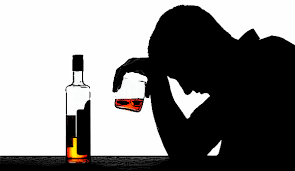Are you aware of your habits and their importance to your health and happiness?
Most of us recognize at least some of our bad habits. If you don’t, someone you live with certainly will. These include those that are harmful to our health, such as smoking, snacking on junk food or staying up too late.
And we’ve all tried to adopt new habits, such as eating more vegetables, walking instead of driving and going to the gym regularly.
Why are bad habits so hard to break, and why does it seem so hard to create new healthier habits?
Habits, by definition, are routines of behaviour that are repeated and reinforced to the point of occurring spontaneously with little conscious effort.
To begin a new habit, a particular behaviour has to be enjoyable and it needs to be reinforced by both a reward and repetition. Triggers or cues remind us when to perform the behaviour; this habit loop continues and the behaviour is reinforced.
A principle in neuroscience is that neurons that fire together wire together. Repeated thoughts and behaviours are physically reinforced in our brains.
This is in essence how we learn. Many of our habits are acquired in early life and we take them so much for granted that we don’t recognize them as habits. You don’t have to relearn how to brush your teeth, shower, walk up the stairs and ride a bike.
We no longer need to give these learned activities our full conscious attention – in fact, most become subconscious. We can take a shower and get to school or work while daydreaming or planning our day.
Some habits develop very insidiously. Corporations are always trying to influence our habits. A morning coffee at McDonald’s, Tim Horton’s or Starbucks is a morning routine of adults of every age. An idle moment in an elevator or waiting in line becomes the cue to take out the smartphone, check e-mails and social media. Getting those “likes” on Instagram and Facebook rewards our brains with a spike of dopamine.
The most important thing about our habits is the way they dictate our behaviour. They can move us towards health and the important goals in life . . . or can lead us further away.
And what we do every day ultimately defines who we are and what we become.
Before you take a deep dive in examining your habits good and bad as well as how you might want to shape them, define your goals. Where do you want to be one year from now? What do you want to achieve in 5 or 10 years?
Begin with your end in mind. How would you like to be remembered by the people who are closest to you?
Envision that best version of yourself. Use it to set the big goals in your life, and break those goals down into more manageable annual, seasonal and monthly goals. Define the smaller doable goals that you can reinforce with new daily deliberate habits.
At 7 p.m. on March 20 I’ll be presenting a free talk entitled, Keys to Positive Change: Transforming Our Bad Habits into Healthy Ones at the Confederation Community Centre at 4585 Albert St. in North Burnaby. This talk is part of the Burnaby Division of Family Practice’s Empowering Patients public health education series. To reserve your seat contact Leona at [email protected]or call 604-259-4450.
Dr. Davidicus Wong is a family physician. His Healthwise Column appears regularly in this paper. For more on achieving your positive potential in life, read his blog at davidicuswong.wordpress.com.



